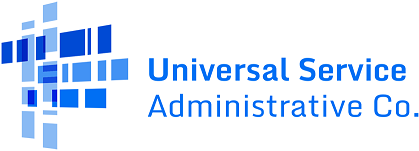Safe Connections Act
Under the Safe Connections Act (SCA), survivors experiencing financial hardship will be able to qualify and receive emergency Lifeline support for up to six months beginning September 4, 2024.
- Qualifying survivors can receive a discount of up to $9.25 on phone, internet, or bundled services.
- After six months, they may apply for the standard Lifeline benefit of up to $9.25 for qualifying internet or bundled services or $5.25 per month for voice-only service.
How Survivors Can Qualify
Survivors can participate in the Lifeline program if they pursue a line separation request and are experiencing financial hardship. Survivors can confirm their financial hardship by participating in the existing Lifeline program requirements or through the below methods:
- If their household income is at or below 200% of the Federal Poverty Guidelines
- Enrollment in the Special Supplemental Nutrition Program for Women, Infants, and Children (WIC)
- Enrollment in the Free and Reduced-Price School Lunch or Breakfast program, including enrollment at a Community Eligibility Provision (CEP) school or school district
- Received a Federal Pell Grant in the current award year
How Survivors Can Apply
| 1. Online
Survivors can visit LifelineSupport.org to complete the electronic application and upload any required documentation. |
|
| 2. Mail
Survivors can complete a paper application (English or Spanish) and mail the application and supporting documentation to this address: Lifeline Support Center |
Once a survivor’s application is approved, they can sign up with a participating Lifeline service provider to receive the SCA benefit. Learn more about how consumers can qualify for the SCA benefit on the Survivor Benefit page on LifelineSupport.org.
Program Rules Impacting Survivor Enrollment in Lifeline
Below is a summary of rules that service providers must follow for the SCA as it relates to the Lifeline program. Providers should refer to the SCA Report and Order and the Lifeline program rules for all policies and regulations.
Survivors will need to provide a valid and completed line separation document from their service provider to receive the SCA benefit. Service providers must collect and maintain specific documentation to support line separation and privacy protection processes:
1. Line Separation Request Documentation
- Service providers must provide survivors with documentation that clearly identifies them and shows that they have properly submitted a legitimate line separation request.
- This documentation should include the survivor’s full name and confirmation that the service provider verified the survivor as a user of the line(s) subject to the line separation request.
- The documentation must be provided even if the line separation request could not be processed due to operational or technical issues.
- The documentation must be in a written format that can easily be saved and shared by a survivor (e.g., email, screenshot of a survivor’s account information, or a text message that includes a screenshot, or regular postal mail).
2. Survivor Status Verification
Survivors must submit one or more of the eligibility documents to service providers as part of the line separation process:
- A signed affidavit from a licensed medical or mental health care provider, licensed military medical or mental health care provider, licensed social worker, victim services provider, licensed military victim services provider, or an employee of a court acting within the scope of their employment.
- A copy of a police report, statements provided by police, charging documents, protective or restraining orders, military protective orders, or any other official record that documents the covered act.
These requirements ensure that survivors have the correct documentation to enroll in Lifeline under the SCA, and that service providers follow proper verification and documentation practices.
Audit Requirements
Lifeline service providers may be subject to audits to ensure compliance with SCA regulations.
- Compliance Audits: Regular audits to verify adherence to the line separation and privacy protection rules.
- Documentation Audits: Review of collected documentation to ensure completeness and accuracy.
- Financial Audits: Audits of billing and financial records post-line separation to ensure correct handling of survivors’ accounts.
